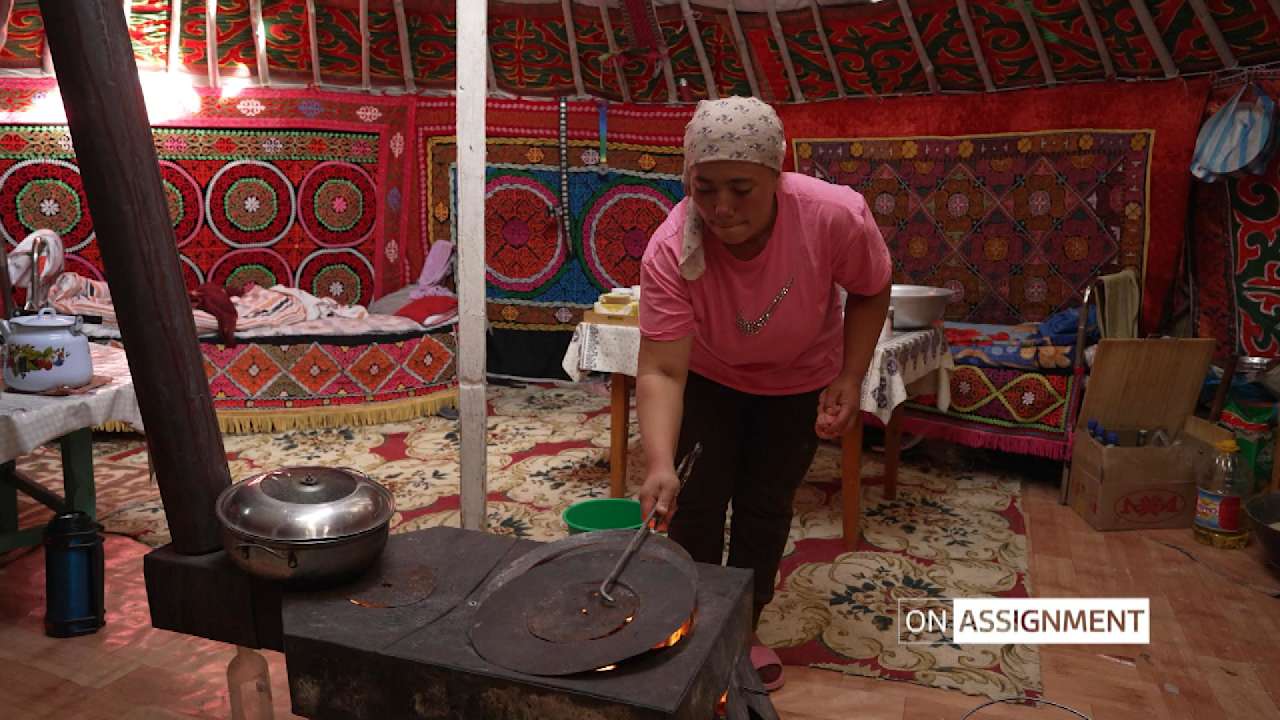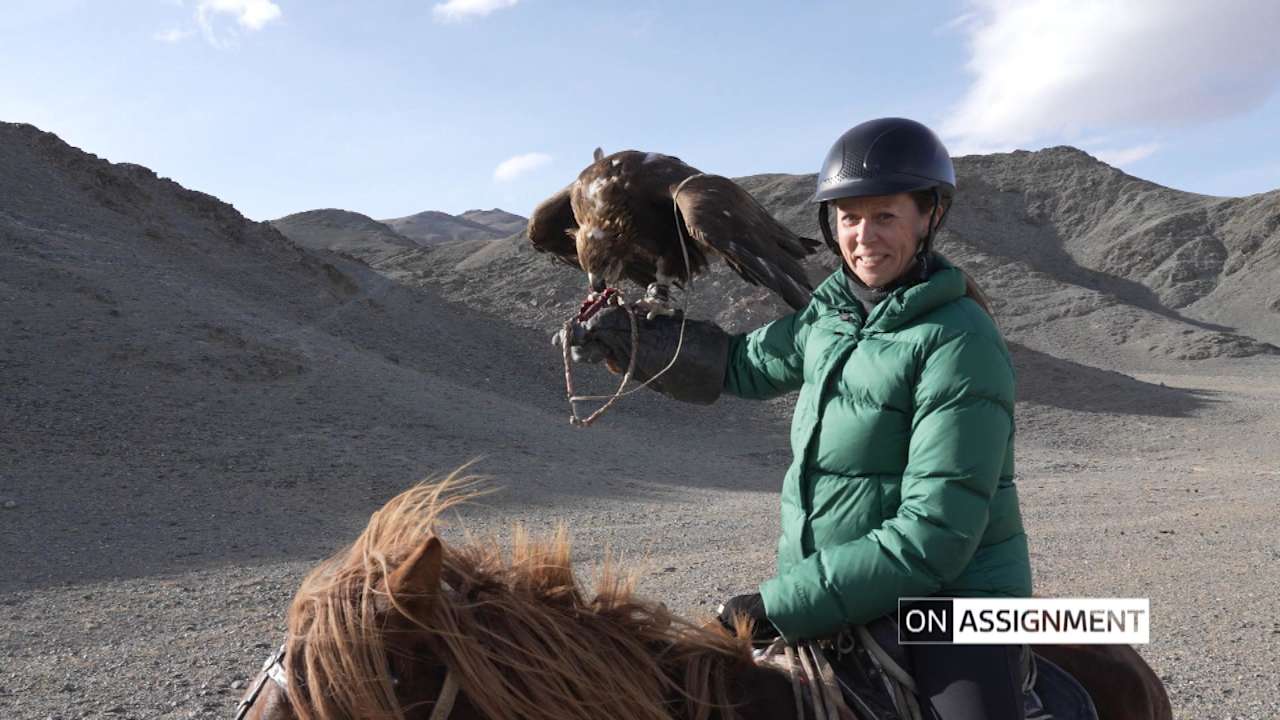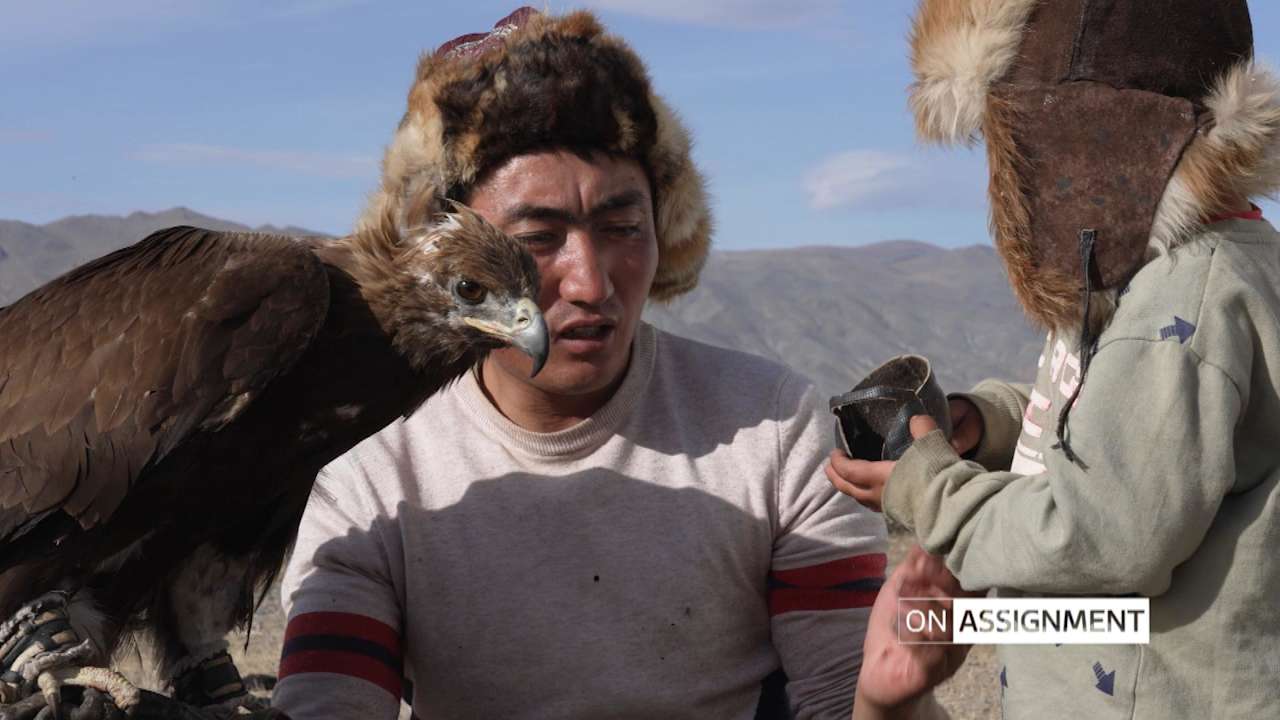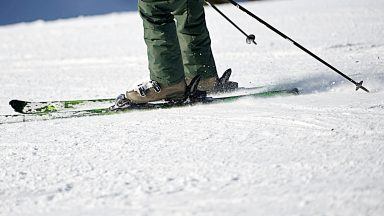Held on the majestic steppes of western Mongolia, the Yellow Lake Eagle Festival was like nothing I had experienced before.
We were quickly transported into a different world, as registration began for the 25th anniversary year of an event which is a fixture in the diary of nomadic communities from across the Bayan-Olgii region.
The festival is held in the foothills of the imposing Altai mountains, in a part of Mongolia which is home to Mongolian Kazakhs – an ethnic group determined to preserve Kazakh culture and traditions.
For centuries Kazakhs have used eagles to hunt for animals like foxes and rabbits, which can provide furs and food for their families.
They came up with the idea of working with eagles to help them deal with the challenges posed by the vast terrain they must cover, and the testing winter climate.
With their incredible eyesight, speed and deadly talons, the golden eagle makes a formidable hunting partner.
Traditionally, baby eagles are taken from their nests, and within weeks can be trained to hunt with humans.
ITV News correspondent Debi Edward journeys to Mongolia, to an event celebrating a Kazakh tradition under threat.
The training involves teaching the eagle to respond to specific commands, spot prey from a distance and return to the hunter with that prey. After five or six years the eagles are released back into the wild, so that they can continue breeding.
It has been predominantly female eagles used for hunting, as they are larger and stronger than the males, but conservationists have encouraged hunters to use more males to protect the golden eagle population.
The population has also come under threat from modernisation. There were members of the Mongolia Wildlife Science and Conservation Centre at the festival, who are working with the eagle hunters to educate them about the dangers of power lines.
Several birds of prey have been killed by new power lines, as Mongolia tries to improve connectivity.
As we found out, eagle hunting is an art which requires patience, skill and a deep understanding of the eagles.
It is the bond between the bird of prey and their hunting partner that is the key to their success.
At the festival, the hunters were challenged against the clock to call their eagle from the top of a nearby hill.
After the first few pairings failed, we were told the warmer than usual weather was disrupting the senses of the bird, or perhaps they had just got stage fright.
There were also a few visitors who had brought drones, and didn’t heed the warnings not to fly them during the competition.
But soon the crowd was given something to cheer when 15-year-old Aymoldir, showed them how it was done. A huge smile broke out on her face as she took her lap of honor, she was the only woman in the competition this year.
In Kazakh culture women tend to the home and don’t usually hunt.
A documentary film a few years ago called ‘The Eagle Huntress’ portrayed Kazakh men as being against women taking part.
However, Aymoldir told us that she didn’t take it up to break tradition, and she hasn’t faced any opposition from men in the community.
In fact, it was her grandfather who encouraged her to take it up, and it his legacy at the competition she hoped to honour.

In the future, she plans to study English and start a family, but she also wants to contribute to the community of individuals and organisations, including the Eagle Festival, who are dedicated to celebrating and preserving Kazakh traditions.
Our hosts were the family of Mana Nurasil, or Nurka, as he prefers. He is an award-winning eagle hunter and came second in this years’ festival.
We were in a part of the world where nomadic herding is still the predominant way of life, and we got to see Nurka working on the land with his wife Gyldauren and their three children.
He would start the day at five thirty, stoking the fires in our Gers, which are the circular tents providing shelter and a transportable means of accommodation when the seasons change.
Caring for his prized golden eagle was a special part of his daily routine. Nurka had learned from his father, and his grandfather, and it looked like his three-year-old son Mustafa was going to be next in line.
When I joined him on horseback for a practice session with his eagle, I gained a new perspective on the deep connection between nature and the nomadic people.

Inevitably, after he’d called his eagle a few times, to demonstrate for us, and for our cameras, he asked if I would like to give it a try.
Before I knew it, I had the long glove on my right arm and a piece of meat in my hand and Nurkas young nephew had released the eagle from the mountain.
I’d seen the hunters at the festival shake the meat in their hand but Nurka’s instructions to me were to hold still and the eagle will come.
It was a successful landing. Lost for words, with the weight of the bird of around four kilograms on my arm, all I could say was “wow”, and admit after my arm got tired, that I needed to work out more.
Allowing me to catch the eagle wasn’t an experience which everyone gets, but despite the compliments for my “catch”, I won’t be heading into winter training for the 2025 festival.
People come from all over the world to watch the festival. Tourism is an important part of the local economy and to preserving the tradition of eagle hunting itself.
We met people from Italy, America, Australia and 89-year-old Mike Tansey, from Leamington Spa. He’d finally fulfilled his dream to visit an underdeveloped, remote part of the globe.
Not only is it a long flight to get to Mongolia, but to attend the festival you also have to drive for two days, or try to secure a seat on the weekly flight, to get to the nearest town of Ulgii.
Mike described his experience as ‘’absolutely fascinating’’ and encouraged anyone who could, to follow in his footsteps.
Before we travelled, I wondered if the festival was going to be an artificial display of eagle hunting. The squabbles over the scores at the end was proof enough that they take the event very seriously.
Not only was there prestige in winning the title of Eagle Hunter of the Year, but we found out the lucrative prize money makes it a rather heated affair.
The head judge was crowded by some disgruntled hunters, on horseback, who felt they’d been unfairly scored.
I came away feeling we’d been given a genuine and privileged insight into a rare and charming corner of the world, where people are holding on dear to a very a special and traditional way of life.
You can watch On Assignment on Tuesday October 29 at 10.45pm on STV, or catch up on STV Player
Follow STV News on WhatsApp
Scan the QR code on your mobile device for all the latest news from around the country



























